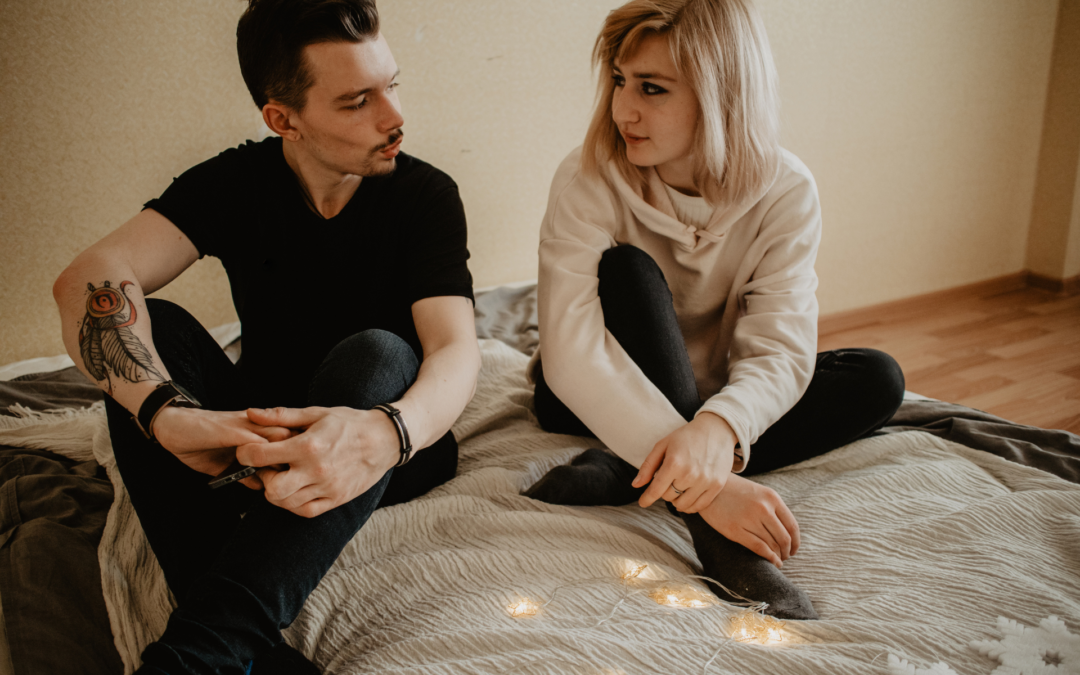We hear the word vulnerable tossed around often—especially in therapy, relationships, or self-growth spaces—but what does it really mean to be vulnerable? Is it weakness? Honesty? Oversharing? Strength?
At Annapolis Counseling Center, we often guide clients through understanding the power of vulnerability. While it might feel scary or unfamiliar at first, emotional vulnerability is actually the foundation for authentic connection, inner healing, and long-lasting relationships. In this blog, we’ll explore what it means to be vulnerable, how to recognize it, and why learning to be vulnerable can be one of the most empowering things you do.
What does it mean when someone is vulnerable?
When someone is vulnerable, they’re allowing themselves to be seen—fully, honestly, and without armor. Vulnerability is the act of sharing your thoughts, emotions, fears, or needs without knowing how others will respond. It’s about opening the door to connection, even when there’s a risk of rejection, judgment, or misunderstanding.
For example, being vulnerable might sound like:
-
“I’m feeling really overwhelmed, and I don’t know what to do.”
-
“I care about you deeply, and I’m afraid of losing you.”
-
“I made a mistake, and I’m ashamed of how I handled things.”
In each of these moments, there’s a choice: to stay guarded, or to let someone in. Vulnerability isn’t about revealing everything to everyone—it’s about choosing openness with the right people, at the right time, for the sake of real connection.
So, what does it mean to be vulnerable? It means showing up as your real self, even when it feels uncomfortable. It’s not weakness—it’s courage in motion.
How do you define a vulnerable person?
A vulnerable person isn’t someone who’s emotionally fragile or constantly exposed. Instead, we define a vulnerable person as someone who is emotionally brave—someone willing to be honest about what they feel and need, even when it’s hard.
Vulnerable people:
-
Know how to express their feelings without shame
-
Are open to giving and receiving feedback
-
Can admit when they’re struggling or hurt
-
Let others in emotionally, even when it’s risky
Being a vulnerable person doesn’t mean you’re always crying or spilling your secrets. It means you’ve developed the strength to be emotionally honest, even when you’re unsure how others will respond.
At Annapolis Counseling Center, we often help clients develop the skills to become more emotionally open—because vulnerability is a muscle, not a personality trait. The more you practice it, the stronger and safer it feels.
What is an example of being vulnerable?
One of the most relatable examples of being vulnerable is telling someone how you really feel—especially when you’re unsure how they’ll react.
Let’s say you’ve been feeling neglected in your relationship. A vulnerable moment might sound like:
“When we don’t spend time together, I start to feel unimportant. I don’t want to blame you—I just want to be honest about how I feel.”
That kind of statement requires courage. You’re not attacking or demanding; you’re simply offering a glimpse into your emotional world. That’s vulnerability at its core—naming your truth without certainty of the outcome.
Other examples include:
-
Admitting you need help
-
Saying “I love you” first
-
Asking for forgiveness
-
Sharing a personal struggle
These actions don’t come from weakness—they come from a deep desire to be seen and accepted. And that’s something we all crave, whether we say it out loud or not.
Is being vulnerable a good thing?
Yes—being vulnerable is absolutely a good thing. In fact, it’s essential for emotional health, healthy relationships, and personal growth. But it doesn’t always feel good at first. Vulnerability can feel raw, risky, and even painful—especially if you’ve been hurt in the past.
That said, the rewards of vulnerability are worth it:
-
Deeper connections with people who truly know you
-
Greater emotional resilience by facing fears instead of avoiding them
-
Improved communication and trust in relationships
-
Relief from internal pressure to always appear “fine” or in control
Research from Dr. Brené Brown, a leading expert on vulnerability, shows that those who embrace vulnerability experience more fulfilling relationships, creativity, and a stronger sense of belonging.
Still, it’s important to be discerning. Vulnerability doesn’t mean oversharing with everyone. It means sharing intentionally with those who’ve earned your trust. Therapy is often a great place to start practicing vulnerability in a safe, supportive environment.
Final Thoughts: What Does It Mean to Be Vulnerable?
To be vulnerable is to be real. It means showing up with your whole heart—messy parts and all. It’s not about perfection; it’s about honesty, courage, and connection.
If you’re just beginning to explore what vulnerability means for you, that’s okay. You don’t have to dive in all at once. Start small. Start where it feels safe. And remember, you don’t have to do it alone.
At Annapolis Counseling Center, we’re here to support you as you learn to let your guard down and live more authentically. Vulnerability might feel scary at first—but with the right support, it can also be the beginning of something beautiful.

